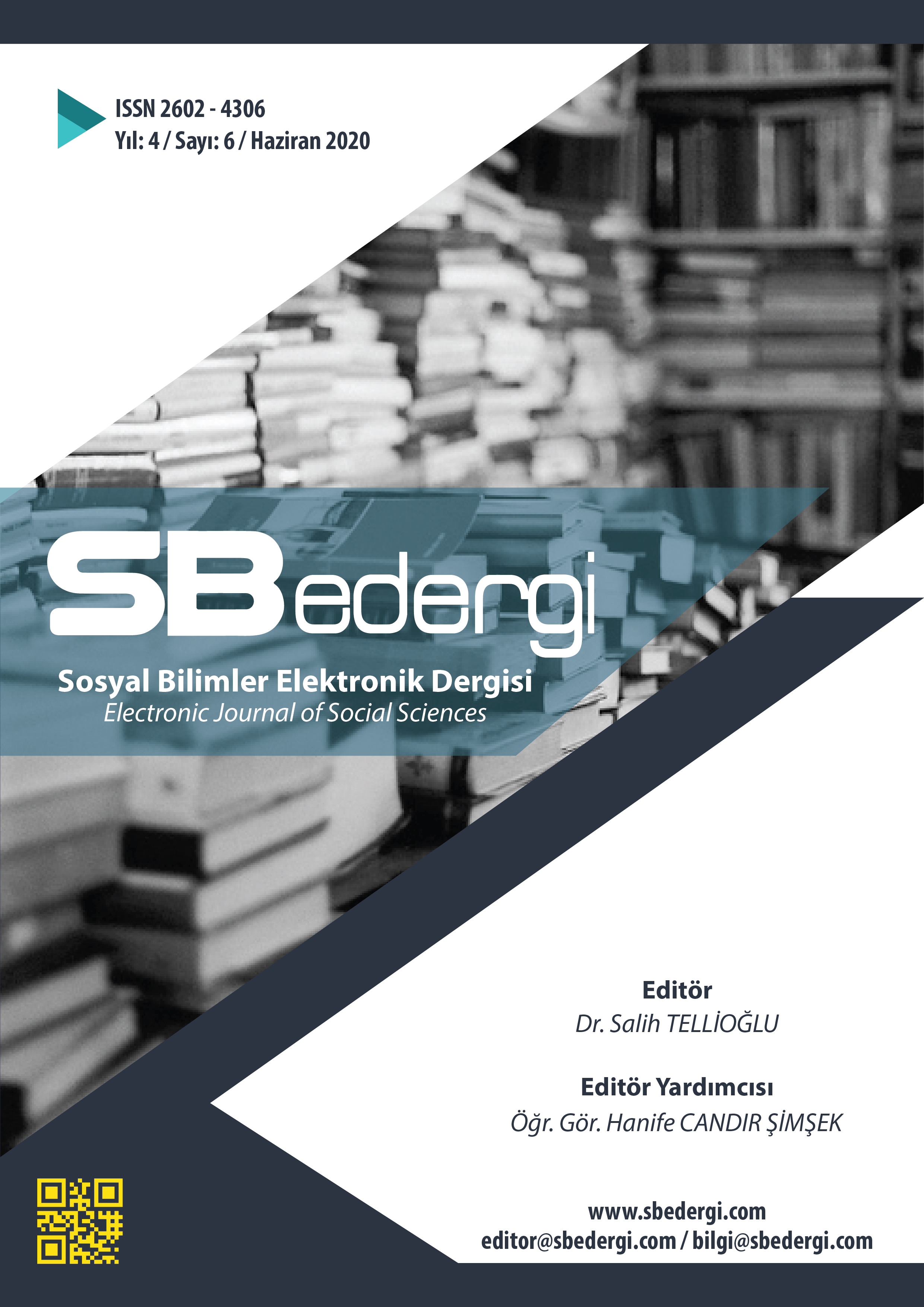MÜZİK ÖĞRETİM YÖNTEMLERİ VE BU YÖNTEMLERİN TÜRK HALK MÜZİĞİNDE KULLANILABİLİRLİĞİ ÜZERİNE GENEL BİR DEĞERLENDİRME
Author :
Abstract
Müzik eğitiminin; başta çocuklar olmak üzere bireylerin sosyal, duygusal ve piskomotor becerilerini arttırdığı, özgüven ve benlik gelişimine olumlu katkılar sunduğu önemli bir gerçektir. 20. yüzyılda müzik eğitim ve öğretiminin daha sistemli bir hale geldiği, ortaya çıkan yöntemler sayesinde öğretim sürecinin daha da hızlandığı görülmüştür. Çocuğun müzikal belleğini kuvvetlendirmek, kapasitesini arttırmak ve enstrüman öğretiminin ön hazırlığını sağlamak için kullanılan bu sistemler hareket ve perküsyon çalışmalarının da bu sürece katılmasıyla daha etkili sonuçlara ulaşmıştır. Müzikal algının ve becerinin küçük yaşlardan itibaren yapılacak çalışmalarla arttırılabileceği ayrıca kanıtlanmıştır. Bu gelişmeler ışığında dünyaca bilinen ve kullanılan C. Orff, Z. Kodally, S. Suziki ve J. Dalcrose gibi müzik bilimcilerin sistemlerinin nasıl oluştuğu, günümüzde nasıl kullanıldığına göz atacağız. Türk halk müziği eğitim ve öğretiminde kullanılabilirliğini inceleyeceğiz. Ülkemizde sistematik olarak bu ve buna benzer metot ve yöntemlerin yeterince anlaşılamamış ve uygulamaya konulamamış olması sorunsalına dikkat çekmek, bu alanda var olan boşluğa değinmek açısından bu çalışma önem arz etmektedir.
Keywords
Abstract
It is an important fact that Music education increases social, emotional and psychomotor skills of individuals, especially children, and contribute positively to their self-confidence and self-development. In the 20th century, it has been observed that music education and training has become more systematic and the teaching process has been accelerated thanks to the emerging methods. These systems,which are used to strengthen the child's musical memory, to increase his capacity and to provide preliminary preparation for teaching an instrument, have achieved more effective results with the participation of movement and percussion studies. It has also been proven that musical perception and skill can be increased with studies starting from a young age. In light of these developments, we will take a glance at how music scientists such as C. Orff, Z. Kodally, S. Suziki and J. Dalcrose created their well known systems and how they are being used worldwide nowadays.Moreover, we will review the usability of these methods in education and training of Turkish folk music. This study is vital in order to draw attention to the problem that these and other similar methods are not well understood and practiced enough systematically in our country and it is also important to address the gap in this field.
Keywords
- Ali , F. (1987). Müzik ve Müziğimizin Sorunları. İstanbul: Cem Yayınevi.
- Bilen , S. (1995). İşbirlikli Öğrenmenin Müzik Öğretimi ve Güdüsel Süreçler Üzerindeki Etkileri Yayımlanmamış Doktora Tezi. D.E.Ü. Eğitim Bilimleri Enstitüsü.
- Çimen , G. (1995). Piyano Başlangıç Metotlarına Genel Bakış. Mavi Nota Müzik ve Sanat Dergisi.(16).
- Demirel, Ö. (2006). Yurtluk, M., Erdem,E., Ekinci,N., Köksal,N., Doğan,N.. Eğitimde Yeni. Ankara: Pagem Yayıncılık.
- Dündar , M. (2003). Müzik Öğretmeni Yetiştirmede Alanda Eğitim. Gazi Üniversitesi Gazi Eğitim Fakültesi Dergisi(23), 59-67.
- Gürgen, E. (2006). “Müzik Eğitiminde Yaratıcılığı Geliştiren Yöntem Ve Yaklaşımlar”. İnönü Üniversitesi Eğitim Fakültesi Dergisi(7), 81-93.
- İşpiroğlu, N. (1998). Sanattan Güncel Yaşama,. İstanbul : Pan Yayıncılık.
- Jungmaır, E. U. (2003). “Geçmişe ve Geleceğe Bakış”. İstanbul Orff Schulwerk Eğitim Ve Danışmanlık Dergisi(3), 18-26.
- Kıvrak, M. (1994). Suzuki Yöntemi İle Piyano Yöntemi. Yüksek Lisans Tezi. İzmir: Dokuz Eylül Üniversitesi .
- Kocabaş, a. (2003). Müzik Öğretiminin Temelleri. İzmir: Egetan Basım Yayın Dağıtım.
- Orff, C. (2003). “Hareketten Doğan Müzik”. İstanbul Orff Schulwerk Eğitim ve Danışmanlık Merkezi Info Dergisi(3), 2-4.
- Tekin, E. (2004). Müzik Alan Derslerinin Müzik Öğretmeni Adaylarının Yaratıcı Düşünme Becerileri Üzerine Etkileri. Yayımlanmamış Yüksek Lisans Tezi. İzmir: Dokuz Eylül Üniversitesi Eğitim Bilimleri Enstitüsü.
- Tufan, S. (1997). 4-8 Yaş Grubu Öğrencilerinin Müzik ve Piyano Eğitimi. Mavi Nota Müzik ve Sanat Dergisi(16).
- Uçan, A. (2003). “Türkiye’de Müzik Eğitiminin Gelişimi, Orff Okul Öğretisinin Tanımı Ve Uygulanımı-Uyarlanımı ve Orff Anlayışıyla Temel Müzik Eğitiminin Genel Durumu. Uluslararası Orff Schulwerk Müzik ve Dans Pedagojisi Sempozyumu.
- Ünal, İ. (2006). 6 – 8 Yaş Çocukları İçin Piyano Eğitimi Veren Kurumlarda Öğretmenlerin Başlangıç Aşamasında Piyano Öğretim Yöntemlerinden Biri Olarak Yaratıcı Dramaya İlişkin Görüşleri. Yayınlanmamış Yüksek Lisans Tezi . İzmir: Dokuz Eylül Üniversitesi
- Yönetken, H. (1952). Okulda Müzik Öğretimi Ve Öğretim Metodları. Ankara : Milli Eğitim Basımevi.





